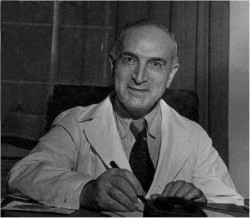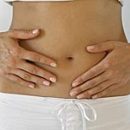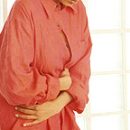What is premenstrual syndrome? How to facilitate the well-being of a woman? Read the answers to questions in the article.
Content
Premenstrued syndrome is often called mood fluctuations in a woman in front of menstruation. It serves as a permanent reason for male jokes over the ladies, whose behavior they consider inadequate. However, for some women premenstrual syndrome is a real problem, and not always the cause of discomfort is a changeable mood.
How premenstrual syndrome is manifested
Periodic appearance of headache, insomnia, depression, as well as unpleasant sensations in the field of heart, suffocation, temperature increase can be taken for the beginning of any serious illness. However, if these symptoms appear shortly before menstruation and with its starts, they will decline, then most likely - these are manifestations of premenstrual syndrome.
According to some data, up to 85% of women suffer from PMS, but not everyone knows about it. The widespread symptoms of PMS also include an increase in body weight, milk gland swelling and bloating, caused by a fluid delay in the body.
Currently, the causes of the development of premenstrual syndrome were not fully studied. Experts believe that this condition arises in connection with the hormonal imbalance (the coefficient of estrogen and progesterone ratio is usually elevated) and / or with increased hormone sensitivity.
Treatment of premenstrual syndrome
One of the ways to treat this syndrome is the correction of a hormonal background of a woman. A diuretic, hypotensive drugs, antidepressants, tranquilizers, etc. are also used for the treatment of PMS. There are several domestic ways to reduce discomfort associated with PMS.
 Adhere to a well-balanced diet. Include in food a lot of fresh fruits and vegetables, fish, bird, wholegrain products and consume less sugar and salt. Sugar can affect the nervous system exciting to the nervous system, and the salt in the body in the body.
Adhere to a well-balanced diet. Include in food a lot of fresh fruits and vegetables, fish, bird, wholegrain products and consume less sugar and salt. Sugar can affect the nervous system exciting to the nervous system, and the salt in the body in the body.
- Avoid alcohol. Alcohol depletes the reserves of vitamin B and mineral salts in the body and violates the exchange of carbohydrates. It also reduces the liver ability to dispose of hormones, which can lead to an increase in estrogen level.
- Reduce caffeine drinks. These include coffee, tea and cola. Caffeine can enhance anxiety, irritability and change of moods. Also he can increase the voltage in the milk glands.
- Reduce meat and fats consumption. Fats negatively affect the work of the liver, and some types of meat may contain artificial estrogens.
- Take care of sports. Exercise reduce stress, as the release of endorphine (natural hormone, improving mood). Running, lift on the stairs, bike, aerobics or swimming – Give an excellent result. Try to perform exercise for 20-30 minutes at least three times a week, if your condition allows.









